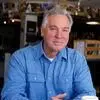She majored in political science, not parlay cards, but Nevada Rep. Dina Titus is showing the kind of savvy the state’s experienced oddsmakers can appreciate these days. She’s not alone.
Despite what seems like an endless campaign season and nonstop political tumult, Nevada’s congressional delegation is tasked with an important role in the real-time evolution of legitimate sports gambling. Nothing less than a piece of the industry’s future is at stake. The stakes are extremely high.
As the last pariah element of legalized American gaming, sports betting needs all the informed allies it can get. Nevada’s bookmakers have more than the next bowl season riding on the repeal of the Professional and Amateur Sports Protection Act and other enlightened changes to the industry at the federal level. Knocking out PSPA and cutting the handle tax on sports betting can set the stage for the next chapter in an extraordinarily colorful part of the gambling racket.
The American Gaming Association has made repealing PSPA a key component of its Washington lobbying effort at a time there’s a former casino owner in the White House. So you’d think the call would be easy to make. not so in an era of unprecedented legislative gridlock.
Complicating matters further is Nevada’s unusually unstable political climate. The senior member of the state’s congressional delegation, U.S. Sen. Dean Heller, is locked in what political experts are calling possibly the tightest race of the year. Meanwhile, promising first-term Rep. Ruben Kihuen just crashed his own career by becoming embroiled in a sexual harassment scandal. He’s in no shape to help anyone – not even himself.
Nevada has promising Democratic Party newcomers in Sen. Catherine Cortez Masto and Rep. Jacky Rosen, who is busy challenging the weakened Heller. Republican Rep. Mark Amodei, who represents much of Northern Nevada, also gets his mail in Washington.
For her part, Titus appears to appreciate that in the sports betting trade, where the profit margins are narrower than slots and table games, every small percentage makes a big difference. Her recent letter to the leaders of the House and Senate calling for the repeal of the 0.25 percent federal handle tax on sports betting is a good example.
It’s far from the first time she’s taken a swing at this issue. She’s raised the idea of repeal in several sessions.
With the rest of America betting illegally to the tune of $150 billion a year, she argues it’s unfair for Nevada bookmakers to pay the excise tax and watch the dollars collected leave the state. Previous congressional leaders from Nevada have chipped away at the law, which was created in 1951. With time running out on the massive tax overhaul, Titus attempted to have the law erased.
“In theory, the law is a noble one,” she wrote in the Dec. 12 letter. “In practice, the tax has sucked money out of Nevada without ensuring the state receives the benefits outlined by Congress.”
The letter serves multiple purposes, not the least of which is reminding congressional leaders that their states are also missing out on the potential upside of legalized, regulated sports gambling. Titus noted that the IRS doesn’t track the approximately $10 million generated by the tax each year.
As longtime Las Vegas oddsmaker and sport betting executive Vic Salerno recently wrote in CDC Gaming Reports, the potential repeal of PASPA , while promising, is no panacea. The devil is in the accounting details — and attaching too high a tax to legal sports wagering is a good way to stoke the popularity of the illegal side.
“The imbalance caused by burdensome taxation and payments to all the entities seeking entitlements, or ‘slivers,’ will cause New Jersey sports book operators to move from the existing 11/10 relationship to betting odds that are 12/10 or even 13/10,” he wrote. “The probable result of such a decision to change the sports betting odds will embolden illegal bookmakers to market their business in a more aggressive manner, offering the customer a better deal at the old $11 rate. In this scenario, the black market will flourish, and the casinos will flounder under the crushing weight and open palms.”
That makes eliminating the handle tax a smaller, but important goal for the industry.
It’s also an important message for Nevada’s ever-evolving congressional delegation to send to its colleagues.
John L. Smith is a longtime Las Vegas journalist and author. Contact him at jlnevadasmith@gmail.com. On Twitter: @jlnevadasmith.





